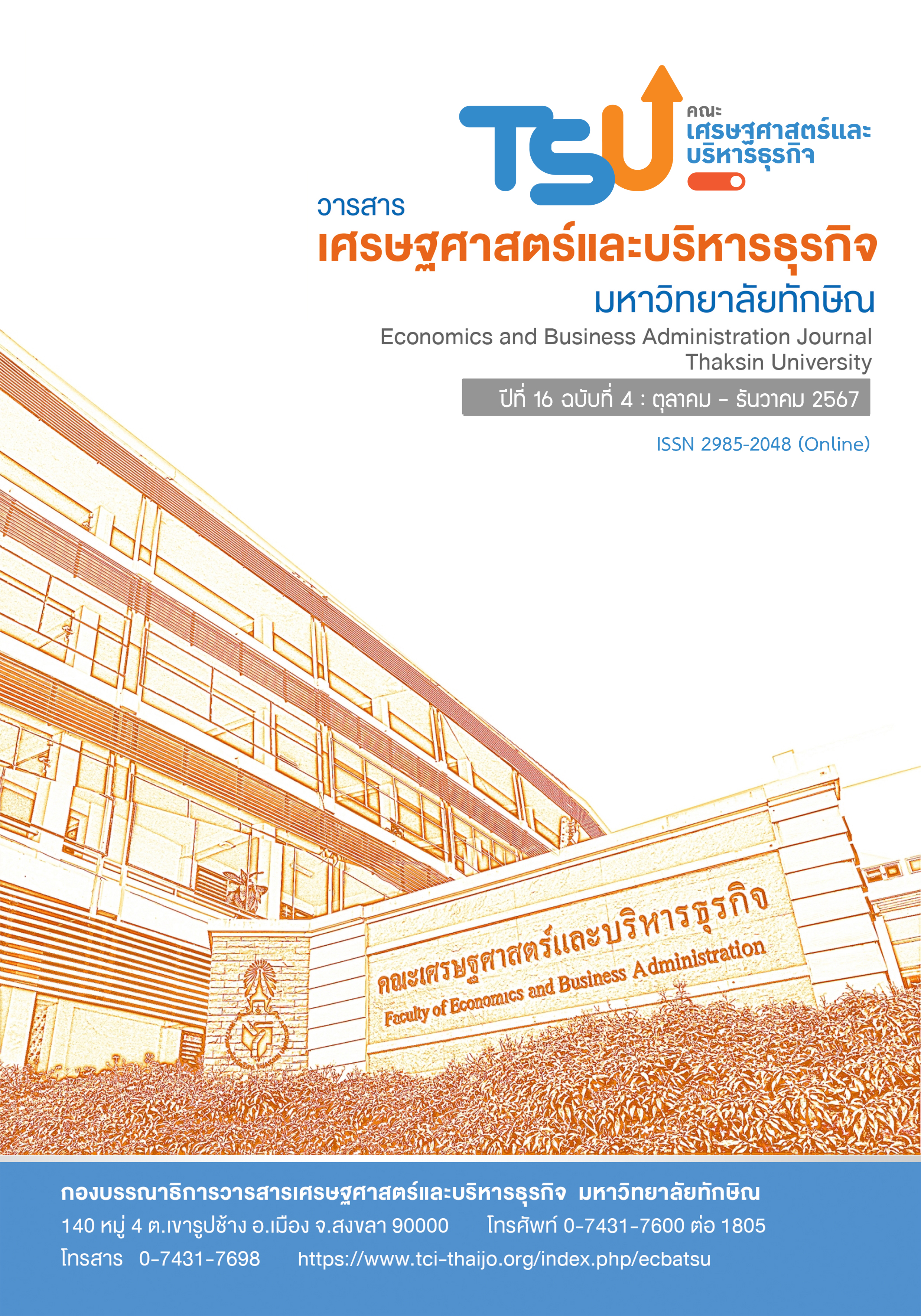Assessing the Social Return on Investment of the Hemp Innovation Development Project on the Cultural Capital of the Hmong Ethnicity in the Phop Phra District of Tak Province
DOI:
https://doi.org/10.55164/ecbajournal.v16i4.267225Keywords:
Social Return on Investment, Hmong Ethnicity, Hemp Innovation DevelopmentAbstract
The aim of this study is to evaluate the social return on investment (SROI) of the hemp innovation development project in Phop Phra District, Tak Province, with a particular focus on the cultural capital of the Hmong community. The project involves a diverse group of stakeholders, including village scholars, hemp entrepreneurs, community innovators from various generations, representatives from the Khirirat Subdistrict Administrative Organization, the Provincial Community Development Office of Tak, and the Phop Phra Community Development Office. The sample size was determined through a sample selection technique, beginning with a quota of 31 participants selected via convenience and purposive sampling methods. These participants voluntarily provided information and actively engaged in the project. Outcome mapping was employed to analyze inputs, activities, outputs, and summarized outcomes, with consideration of factors such as deadweight, attribution, and drop-off to evaluate surplus outcome data. To calculate the project's SROI, a financial proxy of the actual results was used. The total investment value (inputs) amounted to 5,183,082.86 Thai baht, while the total investment output was 4,824,804.06 Thai baht. The resulting SROI was calculated at 3.22 Thai baht, indicating that for every Thai baht invested, the project generates a social benefit worth 3.22 Thai baht. It can be concluded that the project has generated significant social value and is a worthwhile investment given the allocated budget for its operation.
References
Cambero, C., & Sowlati, T. (2014). Assessment and Optimization of Forest Biomass Supply Chains from Economic, Social and Environmental perspectives. A Review of literature. Renewable and Sustainable, 36(1), 62-73.
Food and Drug Administration Narcotics Control Division. (2021). Hemp. Ministry of Public Health. Retrieved March 17, 2023, from https://mnfda.fda.moph.go.th/narcotic/?p=11575.
Joyce, S A., & MacFarlane, M. (2001). Social Impact Assessment in the Mining Industry: Current Situation and Future Directions. London: Mining, Minerals and Sustainable Development.
National Innovation Agency, Thailand. (2020). SROI CALCULATOR. Retrieved October 25, 2022, from https://sroi-calculator.nia.or.th.
Office of the National Economic and Social Development Council. (2020). Report on the Results of Economic and Social Development of the Country. Bangkok: Office of the National Economic and Social Development Board.
Office of the National Economic and Social Development Council. (2022). Gross Domestic Product Chain Volume Measures 1/2566. Retrieved April 17, 2023, from https://www.nesdc.go.th/ewt_dl_link.php?nid=13214&filename=QGDP_report.
Pongwiritthon, K. (2018). Development of Information System for Enhancing the Competency in the Competitiveness of Small and Medium Enterprises in Northern Region of Thailand. WMS Journal of Management Walailak University, 7(2), 47-63.
Pongwiritthon, K., Kamchai, K., & Panturee, W. (2022). Social Return on Investment Assessment from Operations of Community-Based Innovation and Career Development Fund: Information Systems for Managing Community Financial Institutions. Res Militaris, 12(2), 1174-1184.
Schlten, P., Nicholls, J., Olsen, S., & Galimidi, B. (2006). Social Return on Investment: A Guide to SROI Analysis. Amstele Veen: Lenthe Publishers.
United Nations Office of Thailand. (2021). A Decade of Action and Decade of Innovation. Retrieved March 17, 2023, from https://thailand.un.org/en/136290-decade-action-decade-innovation.
Vallaeys, F. (2011). University Social Responsibility: A Mature and Responsible Definition. Higher education in the world 5.
White, H., & Raitzer, D. A. (2017). Impact Evaluation of Development Interventions A Practical Guide. Asian Development Bank. Retrieved March 17, 2023, from http://dx.doi.org/10.22617/TCS179188-2
Downloads
Published
How to Cite
Issue
Section
License
Copyright (c) 2024 Faculty of Economics and Business Administration, Thaksin University

This work is licensed under a Creative Commons Attribution-NonCommercial-NoDerivatives 4.0 International License.




